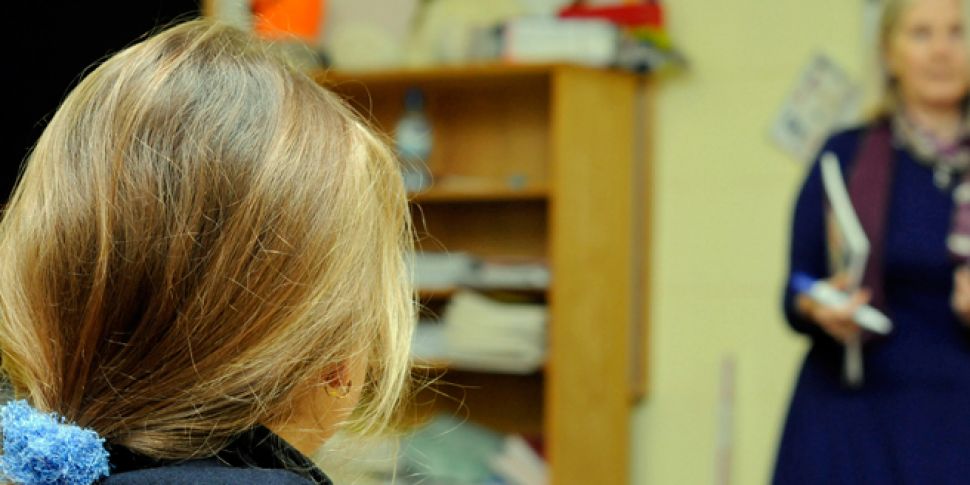The Primary Online Database, an electronic individualised database of primary school pupils set up by the Department of Education, will collect individual information on each pupil, including their PPSN, and retain the information until the pupils reach age 30.
According to the Department's website, the database has been set up in order to reduce the need for requesting data from individual schools.
The records will be "maintained until the pupil reaches the age of 30." This is to allow "analysis in line with the national and international priorities for lifelong learning, and to allow for pupils to obtain their record from the Department in the future.”
The Primary Online Database will aim to:
- replace the need for schools to complete the National School Annual Census,
- replace the need for schools to maintain the Clárleabhar,
- facilitate inter-school transfers,
- facilitate the transfer of data from primary to post-primary schools,
- identify pupils who do not make the transition from primary to post-primary,
- allow schools to update DES centrally-held, school-level data such as School Name, Address and Telephone Number. This will provide schools with one point to correct or amend contact details which will then be available to be accessed by all areas across the Department.
However, the website also states that the Department will aim to share this information with other departments including "Department of Social Protection, the HSE and the NCSE, and other bodies" which aims to eliminate the request for data in relation to "vaccination programmes, child benefit claims, application for special educational needs."
The Department is requesting the schools populate the database with information on children attending school since September 2014. Schools can enter the data until March 2015.
This is the letter issued to parents:
You can find the information on the Fair Processing notice here. Here, the Department states: "The Department will retain personal data in categories 1 and 2 for each pupil on POD for the longer of either the period up to the pupil’s 30th Birthday and subject to review thereafter or for a period of ten years since the student was last enrolled in a primary school."
The Deparment have also stated why this information is retained: "The purpose of the Department’s retention policy also serves to trace retention trends in the education system, is important for longitudinal research and policy formation, as well as being an important statistical indicator nationally and internationally. Again aggregate and not individual data is used for the majority of these purposes. Individual student records are also retained to meet individual requests from former students who may require them for employment or other purposes."
A similar issue arose with the case of Irish Water and PPS numbers when people were asked to provide the numbers when registering with the company. The Government later declared that PPS numbers were not needed to register with Irish Water.
The Department of Education responded by stating: "Individualised data coverage has already been in place for a number of years at pre-primary, post-primary and third level education, and is an extremely valuable resource in monitoring the progress of all students through the education system, including vulnerable subgroups, developing education policy, forward planning, and underpinning payments and teacher allocations to education institutions."
In relation to data protection, they stated: "The Department takes the protection of pupil’s data very seriously. Schools may only access the data of students currently enrolled in their schools. It is Departmental policy that only a small number of Departmental staff, who have a specific requirement which is related to their work, have access rights to view the personal data of students."
The Department also proposes to share some of the personal data stored on POD with other State bodies. These are:
- Central Statistics Office, under the Statistics Acts to assist with the compilation of national statistics.
- The National Council for Special Education, under the Education Welfare Act, in order to assist in supporting resource allocation in relation to pupils with special educational needs.
- The Child and Family Agency, under the Education Welfare Act, to ensure that each child of compulsory school age is in receipt of an education.
- To meet the Department’s business needs in regard to the allocation of resources to schools, the Department will share a limited amount of each pupil’s personal data, including a child’s PPS number with the Department of Public Expenditure and Reform PPSN validation service, or directly with the Department of Social Protection Client Identity Database area, in order to validate the identity of each pupil and ensure that the correct resource allocation is granted to each school. The legal basis for this sharing of data is set out in Social Welfare Act.
"The Department will put in place a data user agreement with each of these bodies, which includes the purpose for which the body requires the data, its storage, security and retention. Similar existing data user agreements are already in place at post primary level."
Solicitor Simon McGarr spoke to Lunchtime with Jonathan Healy and raised his concerns about the collection of the PPS numbers and personal data:
"If they intend to hold that data until the children are 30, that data will be sitting around in a database, gradually every year collecting up the personal data of every citizen being educated. This is not a small thing."











